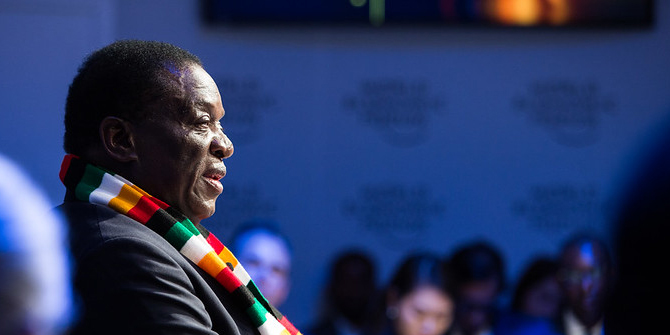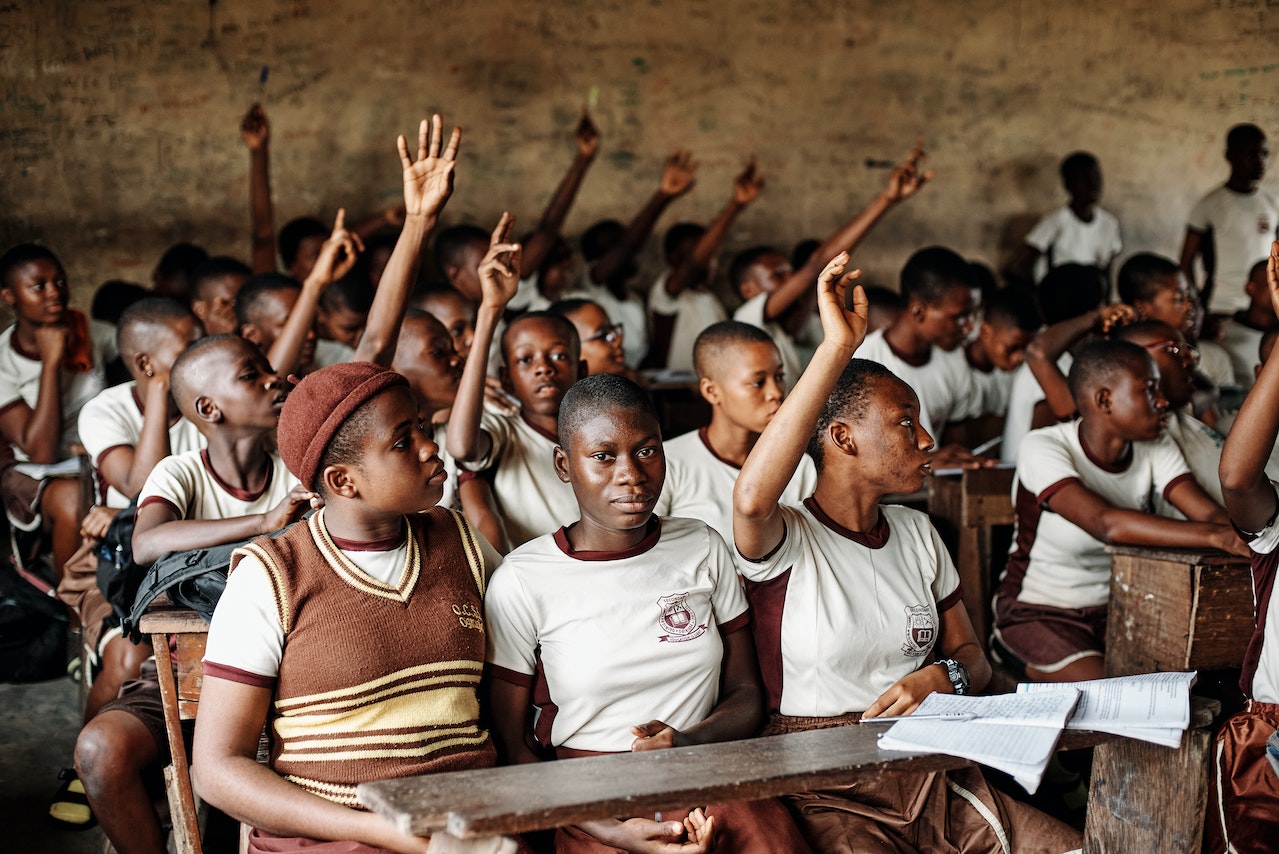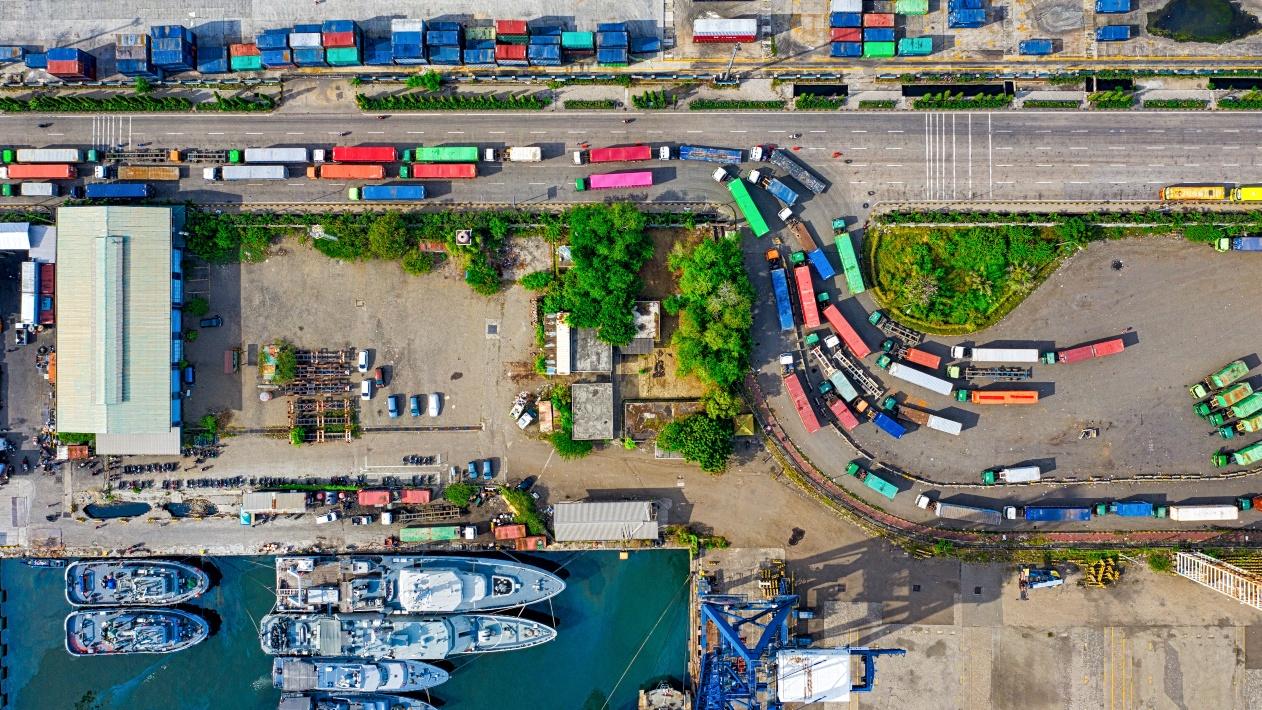LSE alumna Prajakta Kharkar Nigam warns that closer scrutiny should be given to China’s largesse towards Uganda.
“I’ll make you an offer you cannot refuse”, the famous line from Mario Puzo’s classic The Godfather comes to mind when I think about China’s developmental efforts in Uganda. Alon Mwesigwa in his article of 23 July, “Tracking Chinese Money in Uganda” asks two pertinent questions –
1. Is the quality of Chinese projects good enough? and
2.Is Uganda fully aware of and factoring in the true cost of such developmental assistance?
Essentially, he is suggesting that the “offer” may not really be as tempting as it looks.

Ideally, any country should pursue development through its own resources, there is dignity in that. These can either be fiscal revenues or financing from domestic capital markets. Where that is not feasible, countries look for grants from donor countries or international organisations. In Uganda-China partnerships, it is important to understand clearly whether China’s developmental efforts are a grant (a free lunch) or a disguised loan with implicit deferred repayment (a free lunch for Uganda today at the expense of its future income). My hunch is that China is providing help against an implicit expectation of preferential treatment or supernormal profits from Uganda’s natural resources sector in the future. If this is true, then China’s “aid efforts” appear more like a loan, not a grant.
To make a decision on any loan, two things need to be considered. One, the offer should be evaluated on its own merits and demerits using a cost-benefit analysis. And two, is this offer better than Uganda’s next best alternative?
Cost-Benefit Analysis
In a cost-benefit analysis, on the benefit-side, there is infrastructure development which Uganda may not be able to accomplish with its own strained resources, timely completion and potentially an accelerated move out of poverty for thousands. On the cost-side, there may be expectations, which the current government of Uganda may be setting, but on behalf of a future generation and government. Thus, there is the economic cost of future repayment which may turn out to be exorbitant in hindsight.
Let us begin by evaluating the cost-side. First, how much is really at stake? Uganda needs to be realistic in pricing the expected value of its natural resources. The value of natural resources is based not only on their intrinsic value and market price but also on how easy it is to benefit from that value. For instance, the expected value of petroleum to Uganda is not merely the projected oil price times the number of barrels that can be produced. This figure should be discounted by the higher risk factors in Uganda, which has weak institutions and multiple market frictions – for instance, there being no deep-sea port to export the oil. So the true expected value of Uganda’s natural resources may be lower than currently touted. From a cost perspective, this means that less may be at stake than the public thinks. At the same time, it may also mean that if contracts are not optimally designed, Ugandan economy may end up with even lesser of the resource gains than those calculated by the government when awarding contracts to Chinese companies.
Next, even if a priceless national treasure is at stake, how likely is the threat to it? To be reasonable, a doomsday scenario is not as likely as it seems. China’s foreign policy, including its developmental efforts in Africa, is focused on establishing China as a geo-political power. Resource-rich Africa is its golden chip against other contenders for global power. I find it difficult to believe that their primary motivation is to plunder African resources or people, although it could very well happen as a side-effect. To avoid this, there is a need to design mining and exploration contracts in a way that they balance incentives for firms to invest with helping the nation retain majority of gains from such national treasures. Whether Uganda follows in the footsteps of Botswana or Angola is in the hands of none other than Uganda’s government and an active civil society.
In addition to economic costs, there is some political cost of Chinese contributions. When a person takes a loan from another, even when the donor expects no repayment, the receiver increasingly comes under a psychological indebtedness. This is called the principle of reciprocity by the well-known Stanford Professor Cialdini. This ‘soft’ power which the donor gains, often inadvertently, over the receiver starts building up covertly. As this happens, the receiver subconsciously starts looking for ways to repay the donor, and often he or she does so by acquiescing with or even appeasing the donor. While a benevolent donor would not misuse such power, a shrewd one could use it to elicit its own interests from the receiver. The question which arises then is, can anyone be sure if China is a benevolent donor?
The jury is still out on whether these costs are outweighed by the benefits to Uganda from Chinese developmental assistance. Large projects are indeed built in a timely manner by Chinese firms; however, as Alon Mwesigwa pointed out, the quality may be questionable. Regardless, the benefits do appear to be significant. China may export inferior quality electronics but the country has been rapidly building a high-speed rail network that will become the most extensive in the world when completed. Needless to say, in cities like Shanghai and Guangzhou, skyscrapers emerge at remarkable speeds, almost like a LEGO construction. So, in general, there is reason to believe that Chinese firms have gained expertise and experience in building sound infrastructure over the years. Also, the onus for ensuring quality should be on Uganda as the recipient. Uganda’s government needs to insist on carrying out due diligence on firms which are contracted, check their past records and make sure that black-listed firms do not qualify for the bids.
Next Best Alternative
There is also a need to think comparatively, rather than absolutely, about quality. This second perspective on the issue of quality requires asking not whether the quality of Chinese construction or exploration or medical equipment is good, rather – Is the quality better than Uganda’s next best alternative? And what then is Uganda’s next best alternative? Does this alternative outweigh the costs and exceed the benefits of the Chinese efforts? This is something for the experts in Uganda’s civil service to carefully analyse and evaluate. A guiding principle to follow is to consider which course of action helps improve skills of the local labour force, brings growth commensurate with the increase in debt burden (if any) and brings the country closer to self-reliance. On this front, the willingness of the Chinese to donate medical equipment and award scholarships to Ugandan students must be applauded as these enhance Uganda’s human capital. However, the Chinese firms also often import Chinese labour on a large scale – there is a need to evaluate whether there is transfer of skills to the local workers. Of course, they could lament about the level of productivity and motivation of the local labour force, however, that is a debate on its own. If skills of local labour are not being enhanced, there is a risk that capacity-building for Uganda’s local labour force may be getting crowded out by over-involvement of Chinese labour.
In essence, perpetual dependence is never a good choice. In the Shakespeare play “Merchant of Venice”, the moneylender Shylock, demands a pound of flesh from Antonio when his ship sinks and he is unable to repay his loan. The witty Portia wins the case for Antonio by claiming that according to the contract, Antonio owes only a pound of flesh and no blood, so Shylock can have it as long as not a single drop of blood flows. The stringent conditions of some donors may seem like a “pound of flesh”. However, many of these like anti-corruption measures may very well be the nudge that Uganda needs to push it onto the path of self-reliance. In contrast, a steady supply of loans which are seemingly unconditional and import of skilled labour can lead to indebtedness and technical dependence. That could cost Uganda more than just a ‘pound of flesh’.





